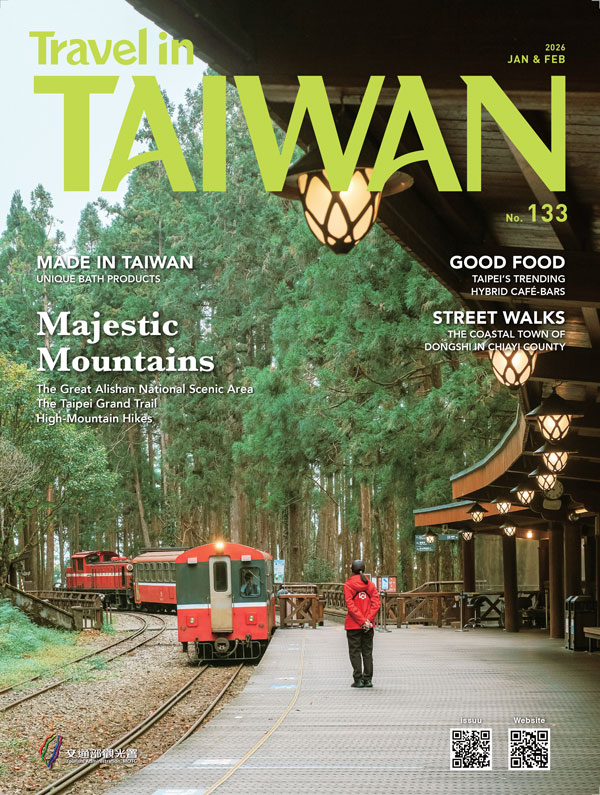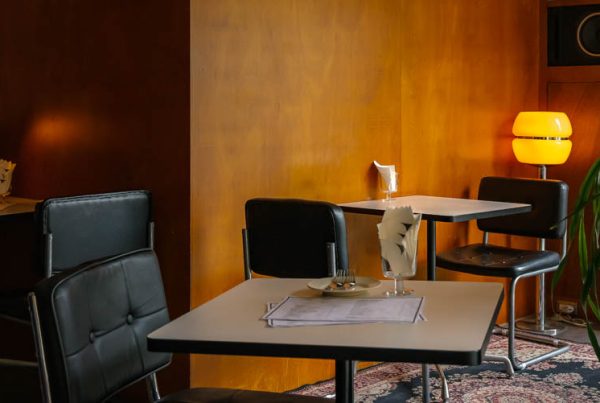Visiting a Decades-Old Herbal Tea Shop
TEXT / AMI BARNES
PHOTOS / RAY CHANG
In old neighborhoods throughout Taiwan, you’ll find herbal shops offering bags of dried plants and dark herbal teas laced with closely guarded proprietary blends of ingredients. These apothecary-esque establishments have often been run by the same family for generations, and their earthy-scented, nostril-ticklingly dusty interiors offer cupfuls of nostalgia infused with the promise of vitality.
Since Longshan Temple was established in the 1730s, it has been the incense-pumping heart of what is now Taipei City’s Wanhua District. Vendors of all kinds have been snared by its powerful gravitational force, and over the post-WWII period leading into the 1970s, the temple neighborhood’s many dispersed herb hawkers coalesced into a fragrant hub on a temple-adjacent lane (today Lane 224, Xichang Street). The large concentration of local sellers was spawned by the ready availability of both raw materials (thanks to the fertile alluvial soil of the nearby riverbanks) and clients (thanks to reciprocal relationships with the many local temples).
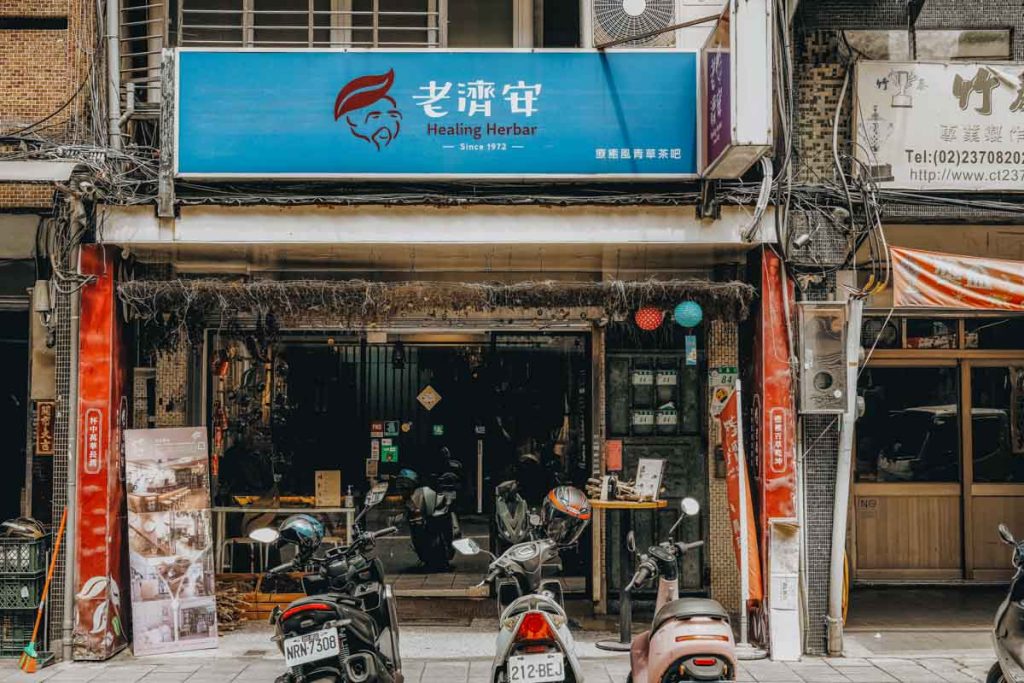
Among the businesses on Herb Alley – as Lane 224 came to be known – was Ji’an Herb Store (now called Healing Herbar in English). “Back then,” says Bryan Wang, the third-generation owner, “herbalists were essentially another type of medical practitioner.” Although both Western and Chinese medicine were readily available, the former was prohibitively expensive for many, and even the latter was out of reach for some.
As a side note for any readers who, like myself, were previously unaware, traditional Chinese medicine (TCM) and herbal medicine are distinct disciplines. TCM encompasses numerous techniques and has an ingredient list that could be used to play an infinite game of “animal, vegetable, or mineral.” In contrast, herbal medicine employs only sundried plants.
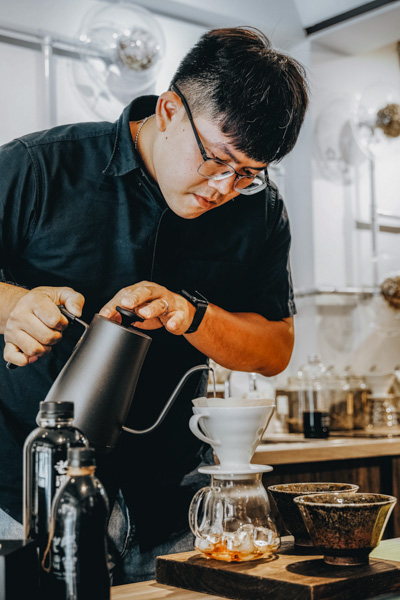
Being an herbalist demanded a vast esoteric knowledge of plants and their uses. People brought medical reports or prescriptions, and practitioners would need to know which combinations of herbs in precisely what quantities would provide the desired therapeutic effects. Sometimes, people might turn up bearing a scribbled list of herbs recounted to them by a god – or more precisely, a list dictated by a deity speaking through a religious medium and copied down by a spiritual translator.
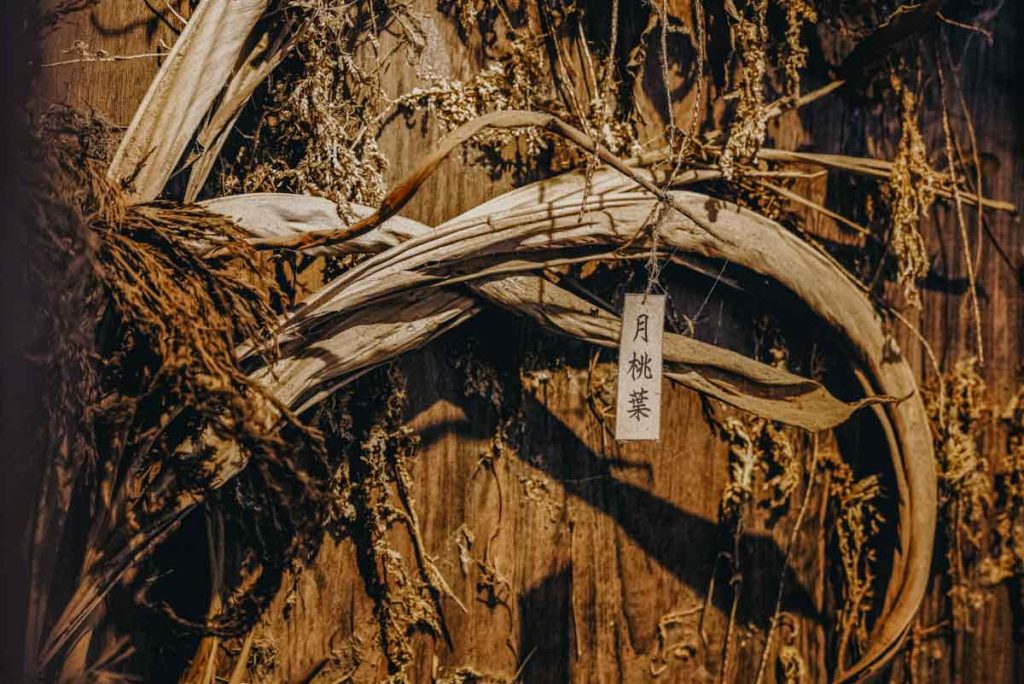
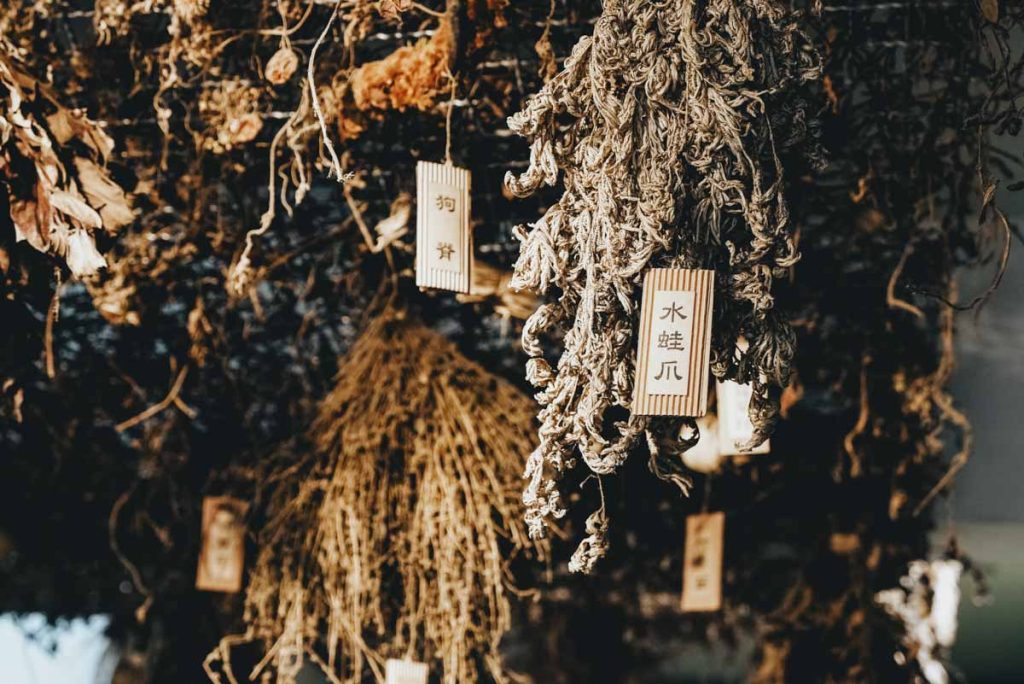
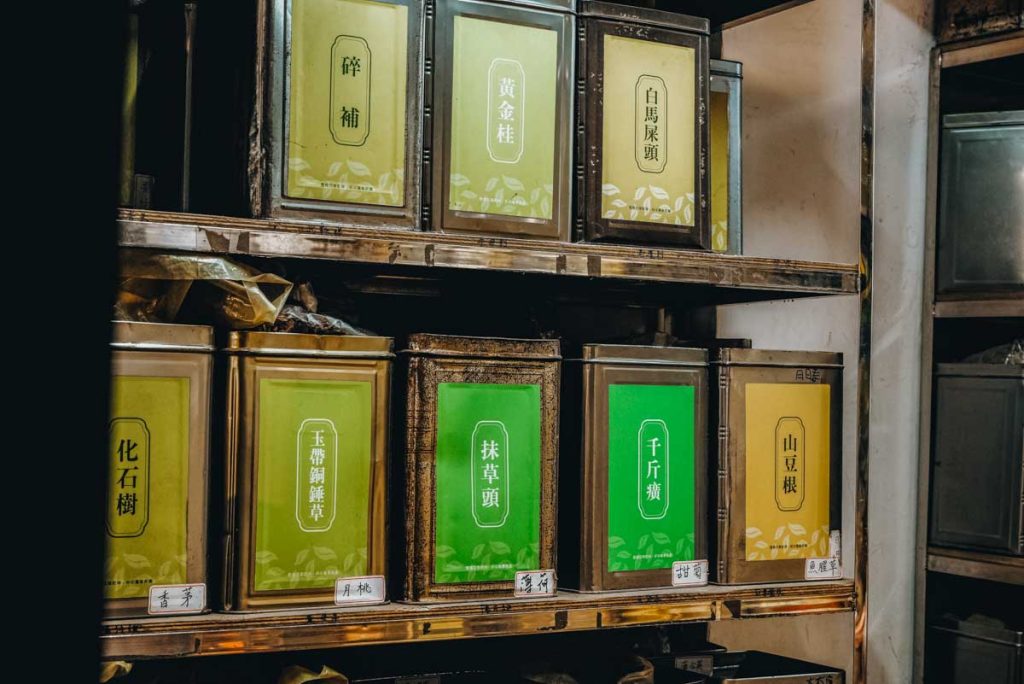
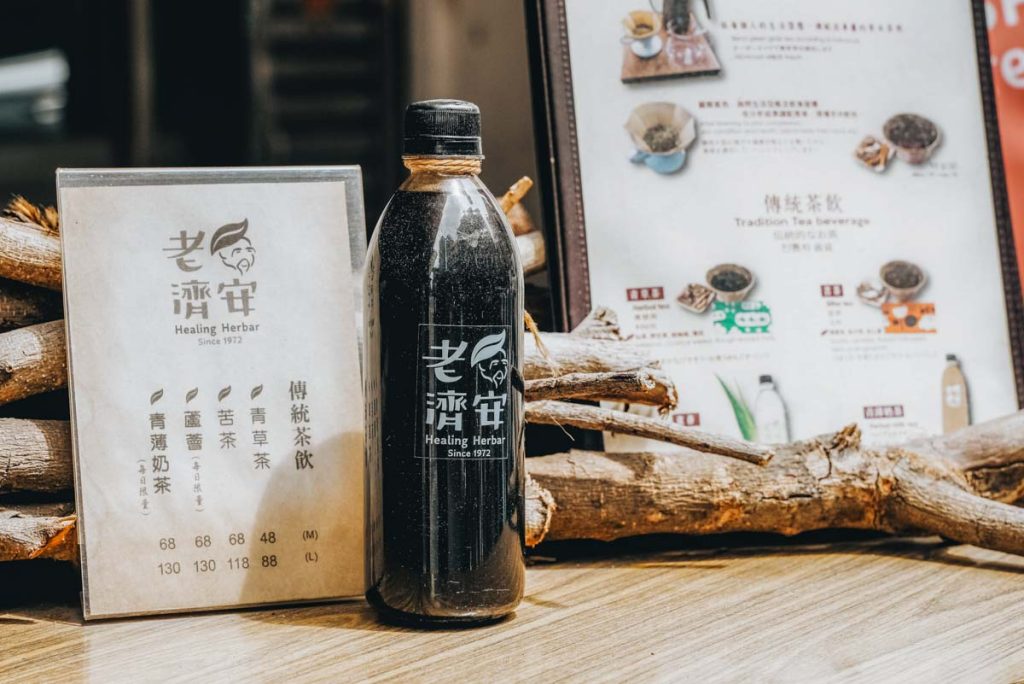
“Some of the more skillful translators would train with herbalists. And sometimes, if a god prescribed an out-of-season ingredient,” Wang discloses with a smile, “we’d have to send the customer back to ask the god if a substitution would be acceptable.”
“In the past, it was enough to know that what you were drinking was healthy in some way”
Thanks to today’s modern healthcare system, Wang says, people who visit his shop aren’t looking for a cure so much as a preventative aid – drinking medicinal teas is now seen as something more akin to taking vitamins. And as people’s reasons for visiting herbal shops have changed, so too have the types of products that consumers want. “In the past,” Wang says, “it was enough to know that what you were drinking was healthy in some way.” No one was concerned about how good it tasted. “These days, if something is too bitter, people will barely take a second sip, let alone become a repeat customer.”
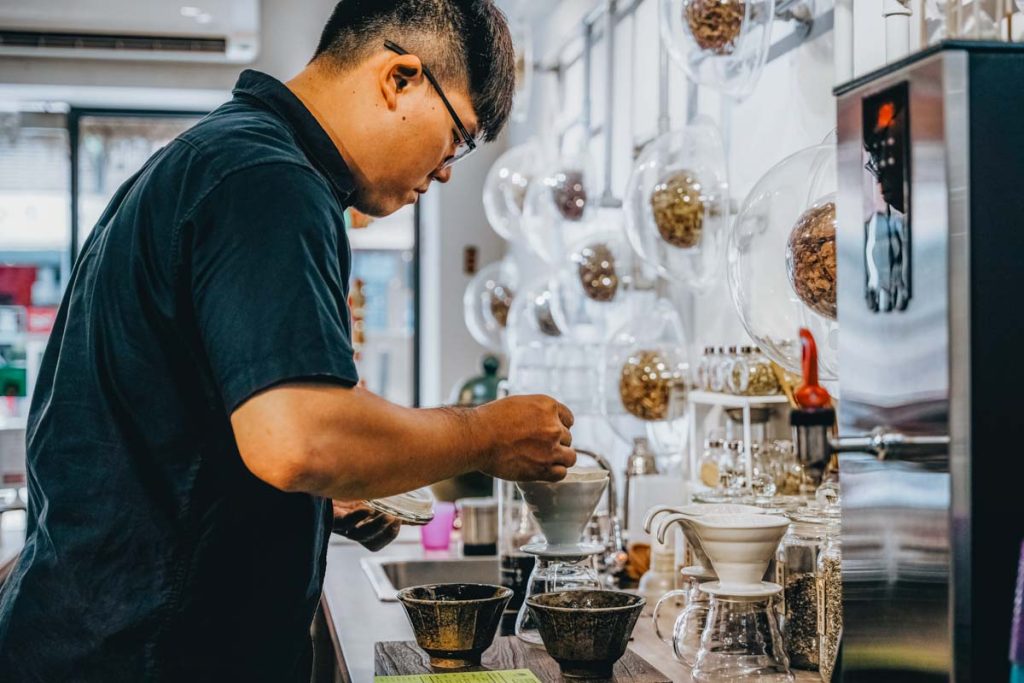
Making his tea blends more palatable to contemporary tastes is just one of the ways in which Wang has tried to pilot his business into the modern age. He has also helped to bring it online. “I grew up knowing that taking over the shop was in my future,” he states, but when the call came a few years back, it was earlier than expected. By this point, it had been relocated to its current position further north on Xichang Street, and the second-generation owners were looking to take advantage of a governmental initiative aimed at assisting traditional businesses to rebrand and remain relevant. “None of them had the first idea about how to create a website or manage an online brand, so they asked me to come on board,” he says.
The transition wasn’t perfectly smooth. “Of course, there are generational differences in how things are done,” he admits. “In my parents’ generation, there was a constant stream of customers – they only needed to keep the shop well-stocked and the money would roll in.” Wang says the landscape is now markedly different. “It’s getting harder to source the herbs, and if we get 20~30 walk-in customers in a day, that’s good.” A lot of his work is now online, but “when my elders see me on the computer, they just think I’m playing games!”
“It’s getting harder to source the herbs, and if we get 20~30 walk-in customers in a day, that’s good”
Wang has to tread the delicate line of serving the shop’s loyal old-timers while also bringing in a new, younger client base. To achieve the latter, he has sought out collaborations with other local businesses and occasionally runs DIY tea workshops. As we chatted, the fruits of his labors were evidenced in the steady stream of customers: regulars popped round to fill up their own containers with the signature herbal tea, an elderly chap came in with a request for dried peanut root, and the young owner of a nearby coffee shop nipped over on an electric scooter to pick up ingredients for use in his shop’s drinks. It’s clear there is a diverse demand for the services offered by a place like Healing Herbar.
These days, Wang has repositioned the shop somewhere between being an herbal clinic and a trendy tea shop. Behind the counter, herbal bouquets are displayed in wall-mounted transparent domes, and in the back half of the space, floor-to-ceiling shelving is filled with tins carefully labeled in earthy shades – some patinaed and battered after literally decades of service.
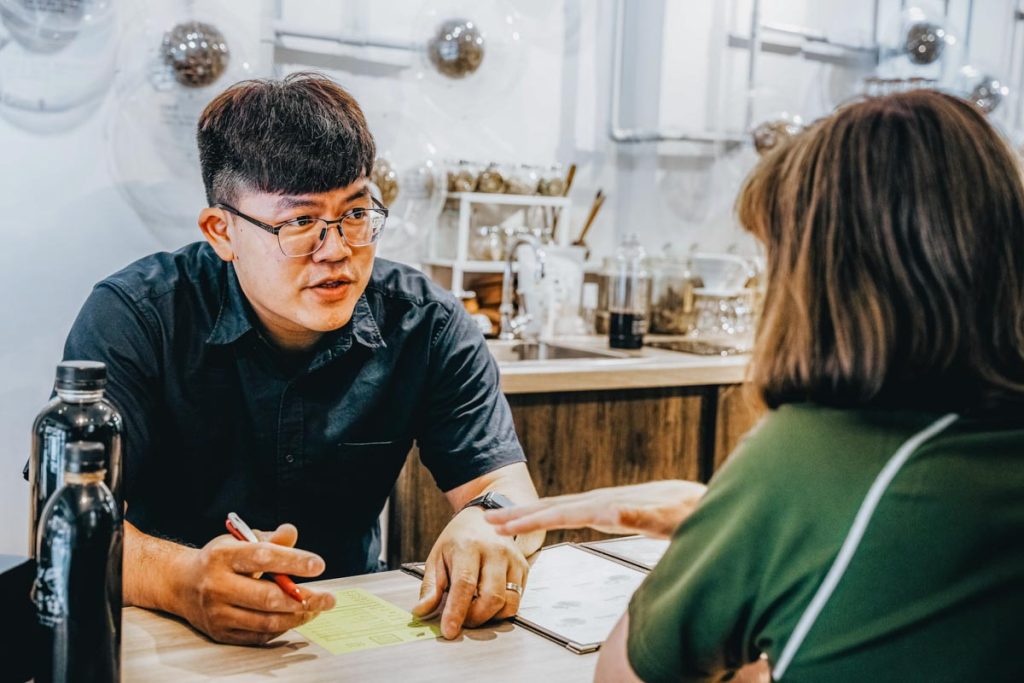
Customers can choose from a menu annotated with helpful notes indicating that a tea is for “busy night owls,” can help with seasonal allergies, and so on. And for something a little tailored, Wang suggested I try the customized healing tea. The process involved a mini health consultation, during which I was asked a few questions about my sleep habits and health complaints. He then prescribed a personalized tea, and showed me the noted-down list of ingredients. You can choose whether to have the drink hot or cold, and for the curious, Wang is able to explain what each of the ingredients is and why he has included them.

Boiling water was poured from an elegant gooseneck kettle over the carefully layered herbs, and I watched it drip into an ice-filled carafe. The resulting brew was a refreshing treat in the muggy heat of the Taipei summer – herbal enough to feel like it would probably do me good, while still having a pleasantly minty aftertaste. My only regret is that I didn’t purchase additional tea bags; otherwise, I would be sipping on my own personalized tea blend as I write.
Healing Herbar
(老濟安)
Add: No. 84, Wuchang St., Wanhua District, Taipei City
(台北市萬華區西昌街84號)
Tel: (02) 2314-1878
Facebook: www.facebook.com/healingherbar




